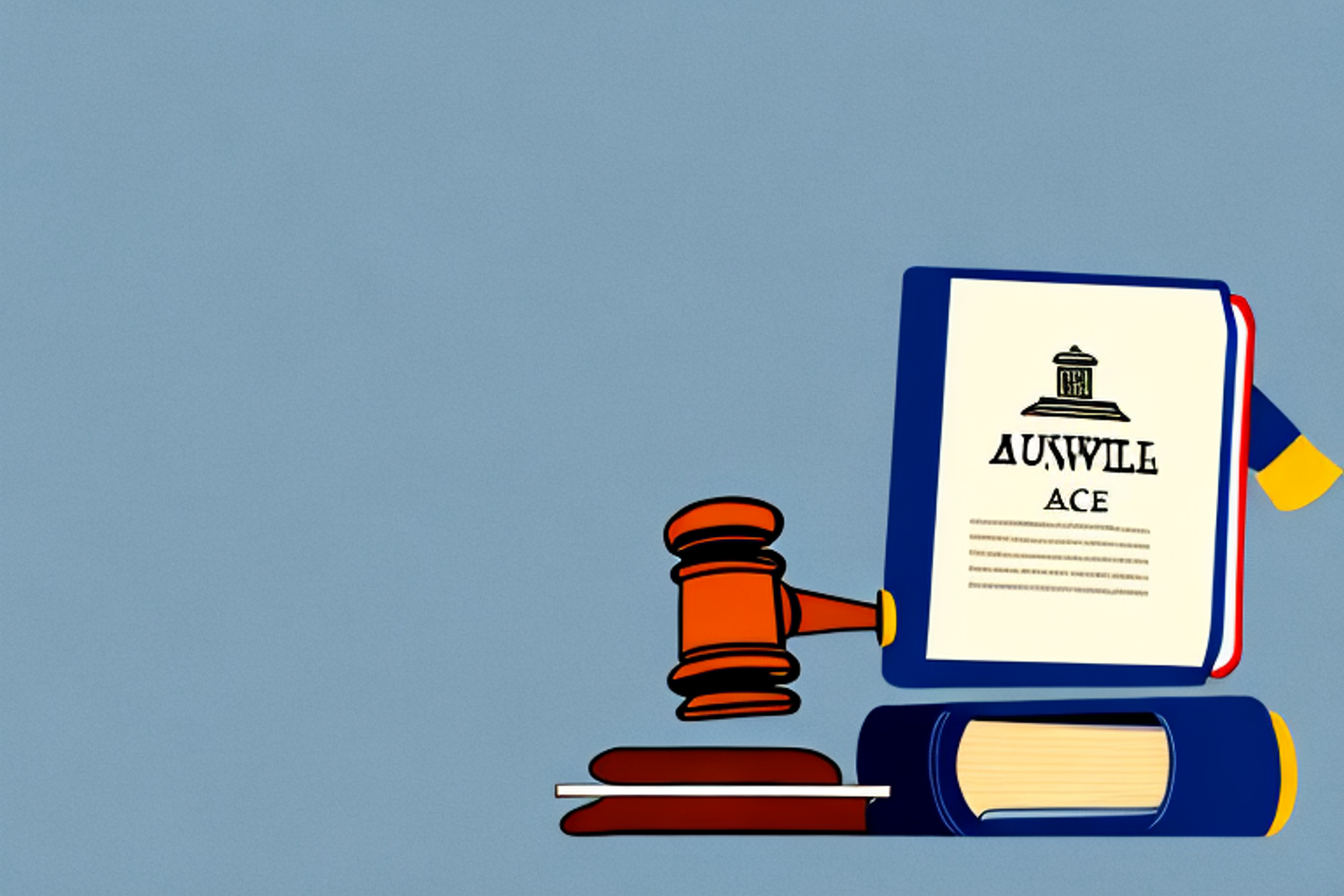How to Write a Compelling Personal Statement for Boston College Law School
Learn how to craft a winning personal statement for Boston College Law School with our comprehensive guide.
Posted March 6, 2025

Table of Contents
Free Event

Featuring Indrani S.
Law School App Office Hours with a Former Stanford AdCom Member
Starting Thursday, April 17
11:30 PM UTC · 45 minutes

Featuring Indrani S.
If you're applying to Boston College Law School, you'll need to submit a personal statement as part of your application. This is your chance to showcase your strengths, highlight your unique experiences and skills, and demonstrate your fit with BC Law's mission and values. In this article, we'll discuss the importance of a personal statement, provide tips for crafting a compelling narrative, and offer advice on common pitfalls to avoid.
The Importance of a Personal Statement for Law School Admissions
Law school admissions committees use personal statements to get to know applicants beyond their academic achievements and test scores. Your personal statement should tell a story about who you are, what motivates you, and why you're a good fit for BC Law. It's an opportunity to showcase your writing skills and demonstrate your passion for the law.
Additionally, a personal statement can also highlight any unique experiences or perspectives that you bring to the table. This can include work or volunteer experience, personal challenges you've overcome, or cultural background that has shaped your worldview. Admissions committees are looking for well-rounded individuals who will contribute to the diversity of the law school community.
Furthermore, a strong personal statement can make up for any weaknesses in your application, such as a lower GPA or LSAT score. It's your chance to explain any extenuating circumstances that may have affected your academic performance and demonstrate your potential for success in law school.
Understanding the Admissions Committee at Boston College Law School
BC Law is known for its rigorous academic program, commitment to social justice, and emphasis on practical skills development. As you craft your personal statement, keep in mind the values and mission of BC Law. Admissions committee members will be looking for applicants who share these values and can contribute to the law school community.
One important aspect that the admissions committee at Boston College Law School considers is an applicant's work experience. They value applicants who have gained practical experience in the legal field, whether through internships, volunteer work, or employment. This demonstrates a commitment to the field and a willingness to learn and grow as a legal professional.
Another factor that the admissions committee takes into account is an applicant's potential for success in law school and beyond. This includes factors such as academic achievements, leadership skills, and personal qualities such as resilience and determination. The committee looks for applicants who have a clear vision for their future and who are motivated to achieve their goals.
Researching Boston College Law School's Values and Mission
Before you start writing your personal statement, take some time to research BC Law's values and mission. Explore the law school's website, read about its faculty and alumni, and attend information sessions or virtual events. This will help you understand the unique ethos and culture of BC Law and demonstrate your interest in the school.
Additionally, researching BC Law's values and mission can also help you tailor your personal statement to align with the school's goals and values. By highlighting how your own values and experiences align with those of BC Law, you can demonstrate to the admissions committee that you are a good fit for the school and its community. This can also help you stand out among other applicants who may not have taken the time to research the school's values and mission.
Crafting an Engaging Opening Paragraph for Your Personal Statement
Your opening paragraph should grab the reader's attention and set the tone for the rest of your personal statement. Consider starting with a compelling anecdote, a provocative question, or a bold statement. Make sure your opening paragraph is relevant to your overall narrative and showcases your strengths.
It's important to remember that your opening paragraph is not only a chance to hook the reader, but also to establish your voice and personality. Avoid using cliches or generic statements, and instead aim to showcase your unique perspective and experiences. Additionally, be mindful of the tone you set in your opening paragraph, as it can influence how the reader perceives the rest of your personal statement. By crafting a strong and engaging opening paragraph, you can set yourself apart from other applicants and leave a lasting impression on the reader.
Highlighting Your Unique Experiences and Skills in Your Personal Statement
Your personal statement should showcase your unique experiences and skills that make you a good fit for law school. This can include academic achievements, extracurricular activities, volunteer work, internships, or work experience. Focus on experiences that demonstrate your leadership abilities, problem-solving skills, or commitment to social justice.
Additionally, it is important to highlight any experiences or skills that are particularly relevant to the field of law. For example, if you have experience working in a law firm or have taken courses related to law, be sure to mention this in your personal statement. You can also discuss any research or writing projects you have completed that relate to legal issues. By highlighting these experiences, you can demonstrate your passion and dedication to the field of law.
Avoiding Common Mistakes in Personal Statement Writing
Common mistakes to avoid in personal statement writing include using cliches, being too generic, or focusing too much on personal struggles or hardships. Instead, focus on highlighting your strengths and accomplishments, and demonstrate your potential as a future lawyer.
Another common mistake to avoid is failing to tailor your personal statement to the specific law school you are applying to. Each law school has its own unique culture and values, and admissions committees want to see that you have done your research and understand what makes their school stand out. Make sure to mention specific programs, clinics, or professors that interest you and explain how they align with your career goals.
Finally, it's important to strike a balance between being confident and humble in your personal statement. While you want to showcase your achievements and potential, you also don't want to come across as arrogant or entitled. Be sure to acknowledge any areas where you still have room to grow and emphasize your willingness to learn and work hard to achieve your goals.
Showcasing Your Passion for Law in Your Personal Statement
Your personal statement should demonstrate your passion for the law and your commitment to pursuing a legal career. This can include discussing your interest in specific areas of law, your involvement in political or social causes, or your volunteer or work experience in legal settings.
One effective way to showcase your passion for law is to discuss any relevant academic achievements or research projects you have undertaken. This could include any legal courses you have taken, any academic papers you have written, or any research you have conducted in the field of law.
Another way to demonstrate your passion for law is to discuss any extracurricular activities or hobbies that relate to the legal field. For example, if you have participated in a mock trial or debate team, or if you have volunteered at a legal clinic, these experiences can show your dedication to the field and your willingness to go above and beyond in pursuing your legal career.
Developing a Clear Narrative in Your Personal Statement
A strong personal statement should have a clear narrative thread that ties together your experiences and goals. Consider framing your narrative around a central theme or idea that showcases your strengths and demonstrates your potential as a future law student and lawyer.
One effective way to develop a clear narrative in your personal statement is to use specific examples and anecdotes to illustrate your points. For example, if you are discussing your passion for advocacy, you could share a story about a time when you advocated for a cause you believe in and the impact it had. This not only makes your statement more engaging, but it also helps to demonstrate your skills and qualities in a concrete way.
Emphasizing Your Fit with Boston College Law School's Culture and Community
BC Law is known for its inclusive and supportive community, commitment to social justice, and emphasis on practical skills development. Your personal statement should demonstrate your fit with these values and showcase how you can contribute to the BC Law community.
One way to showcase your fit with BC Law's culture and community is to highlight any experiences you have had working with marginalized communities or advocating for social justice causes. Additionally, you can discuss any leadership roles you have held and how you have worked to create a positive and inclusive environment for those around you. By demonstrating your commitment to these values, you can show the admissions committee that you are not only a good fit for BC Law, but that you will also be an active and engaged member of the community.
Using Active Voice and Strong Verbs in Your Personal Statement
To create a compelling personal statement, use active voice and strong verbs. This will help your writing sound more confident and assertive. Avoid passive voice and weak verbs, which can make your writing sound dull or unconvincing.
Tips for Editing and Revising Your Personal Statement
Editing and revising are essential to creating a strong personal statement. After you've finished your first draft, take a break and come back to it with fresh eyes. Look for areas where you can cut unnecessary words or phrases, clarify your meaning, or strengthen your arguments. Consider asking trusted friends, family members, or professors to review your personal statement and provide constructive feedback.
Seeking Feedback from Peers, Professors, and Professionals
Seeking feedback from others can help you refine your personal statement and make it more compelling. Consider reaching out to peers, professors, or professionals in the legal field for feedback. They may be able to offer valuable insights or suggestions for improvement.
How to Address Weaknesses or Gaps in Your Academic Record
If you have weaknesses or gaps in your academic record, your personal statement can be a good opportunity to address them. Explain any extenuating circumstances that may have affected your grades or academic performance, and show what you've learned from those experiences. Focus on the steps you've taken to improve and your potential as a law student.
Final Steps: Formatting, Proofreading, and Submitting your Personal Statement
Before you submit your personal statement, make sure to proofread it carefully and check for spelling and grammar errors. Follow any formatting guidelines provided by BC Law, and make sure your personal statement is the appropriate length. Submit your personal statement with your law school application and wait for a response from the admissions committee.
In conclusion, a compelling personal statement is essential for success in law school admissions at Boston College. Take the time to research BC Law's values and mission, craft a clear and engaging narrative, and showcase your unique strengths and experiences. Remember to seek feedback, edit and revise, and submit your personal statement with confidence.










